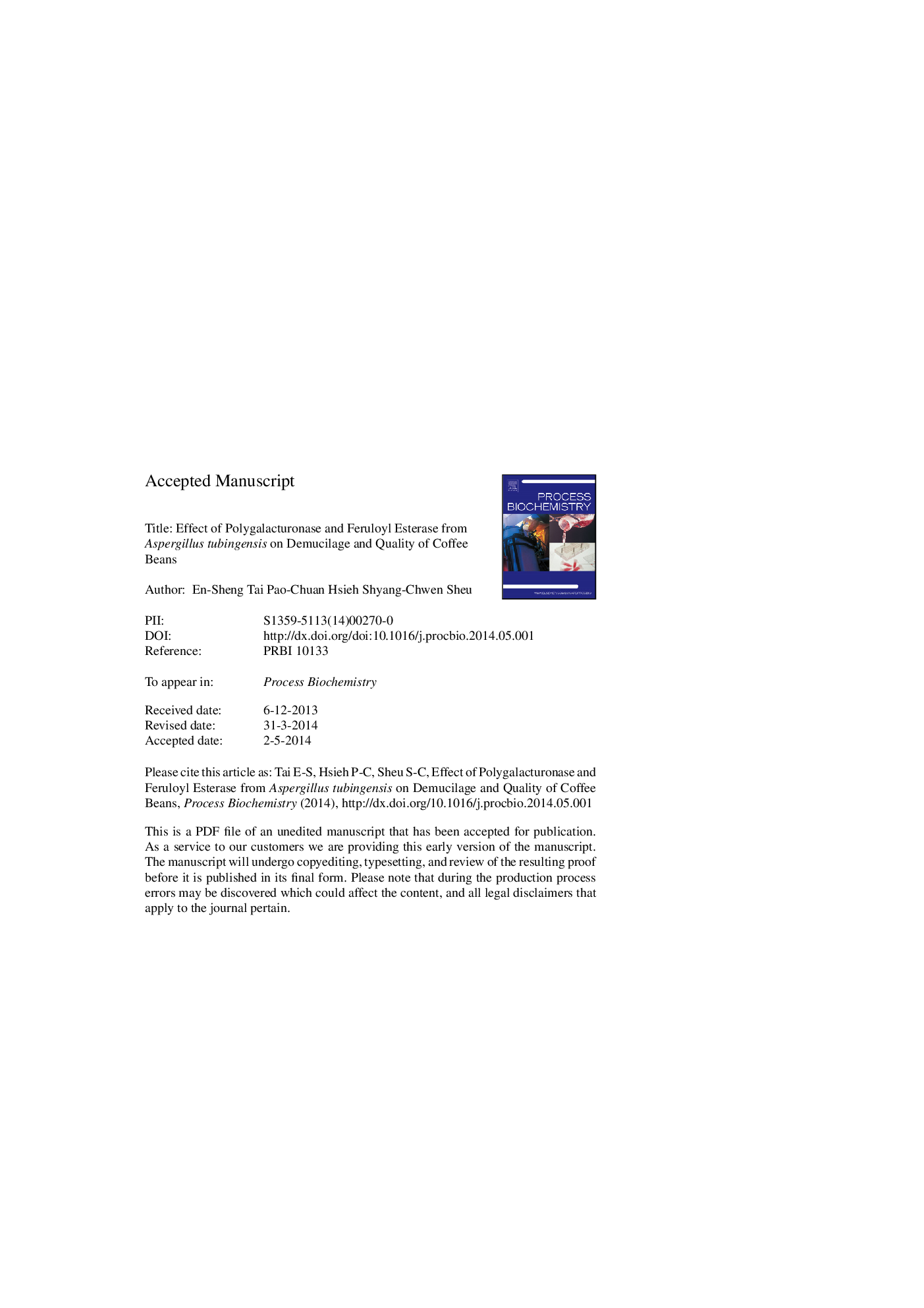| Article ID | Journal | Published Year | Pages | File Type |
|---|---|---|---|---|
| 10235397 | Process Biochemistry | 2014 | 24 Pages |
Abstract
To explore the potential for the application of Aspergillus tubingensis enzyme extract in coffee processing, the effects of crude enzymes on coffee beans were studied. Yields of polygalacturonase and feruloyl esterases obtained from solid-state fermentation using A. tubingensis, with pectin and de-starched wheat bran as carbon sources, were 15.9 U/mL and 2.44 U/mL, respectively. Crude enzyme extracts removed the mucilage of coffee cherries within 3 h, which is substantially more efficient than traditional fermentation. Additionally, the viscosity of coffee mucilage was reduced to 80% by a 3-h treatment with the crude enzyme extract at 50 °C. The titratable acidity and organic acids in coffee beverages were also decreased to half the amounts of those in the traditionally fermented group. The total chlorogenic acid in the green beans decreased to 67.3%; however, a decline of only 14.3% was observed in the traditionally fermented group. On the other hand, chlorogenic acid lactones in the roasted beans were reduced to 63.9%, and a 37.2% decline in the chlorogenic acid content was detected.
Related Topics
Physical Sciences and Engineering
Chemical Engineering
Bioengineering
Authors
En-Sheng Tai, Pao-Chuan Hsieh, Shyang-Chwen Sheu,
